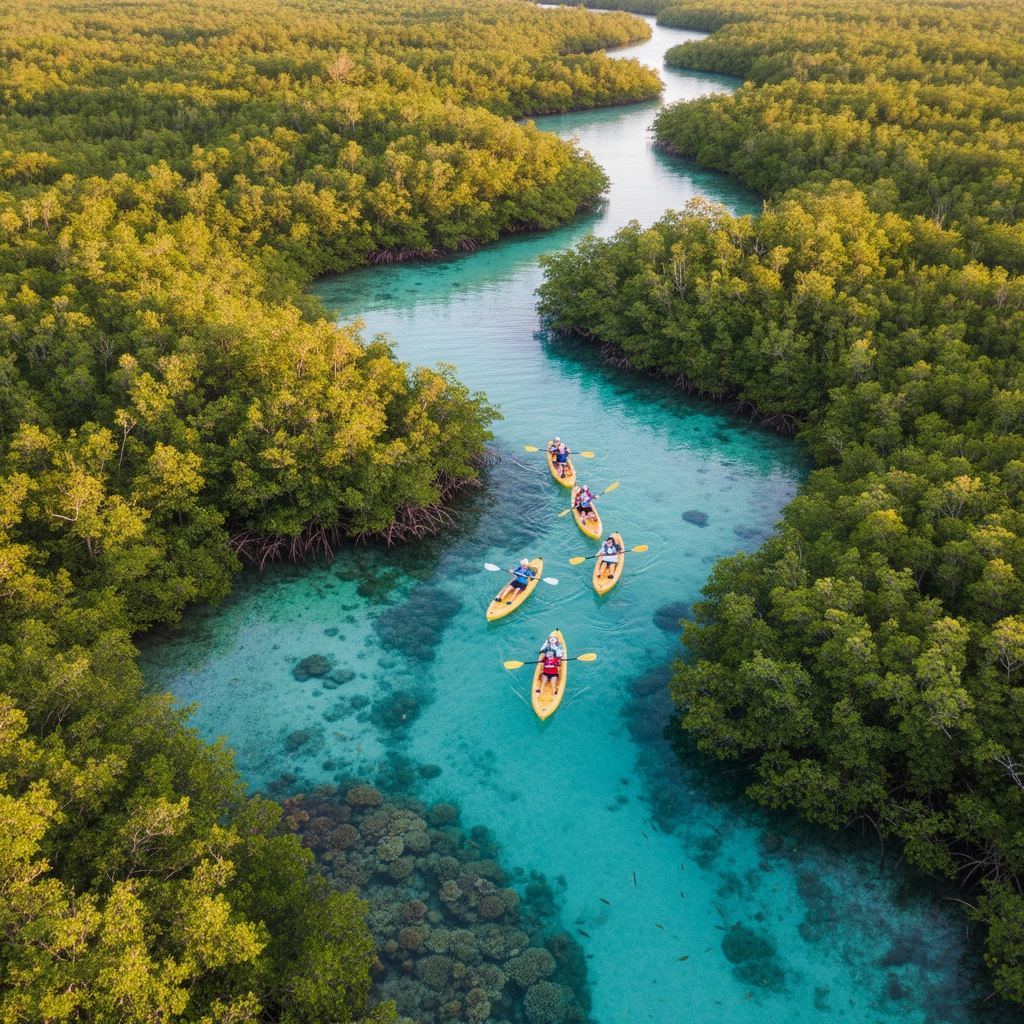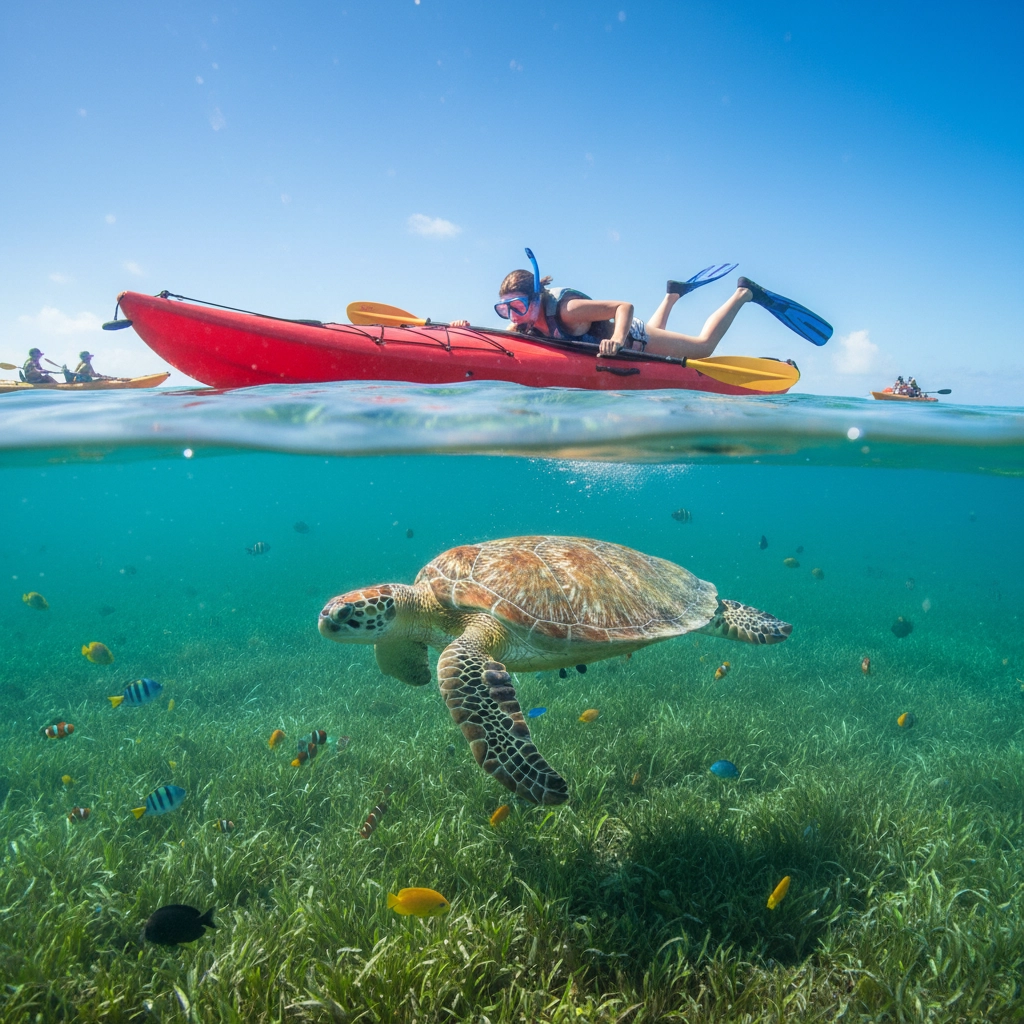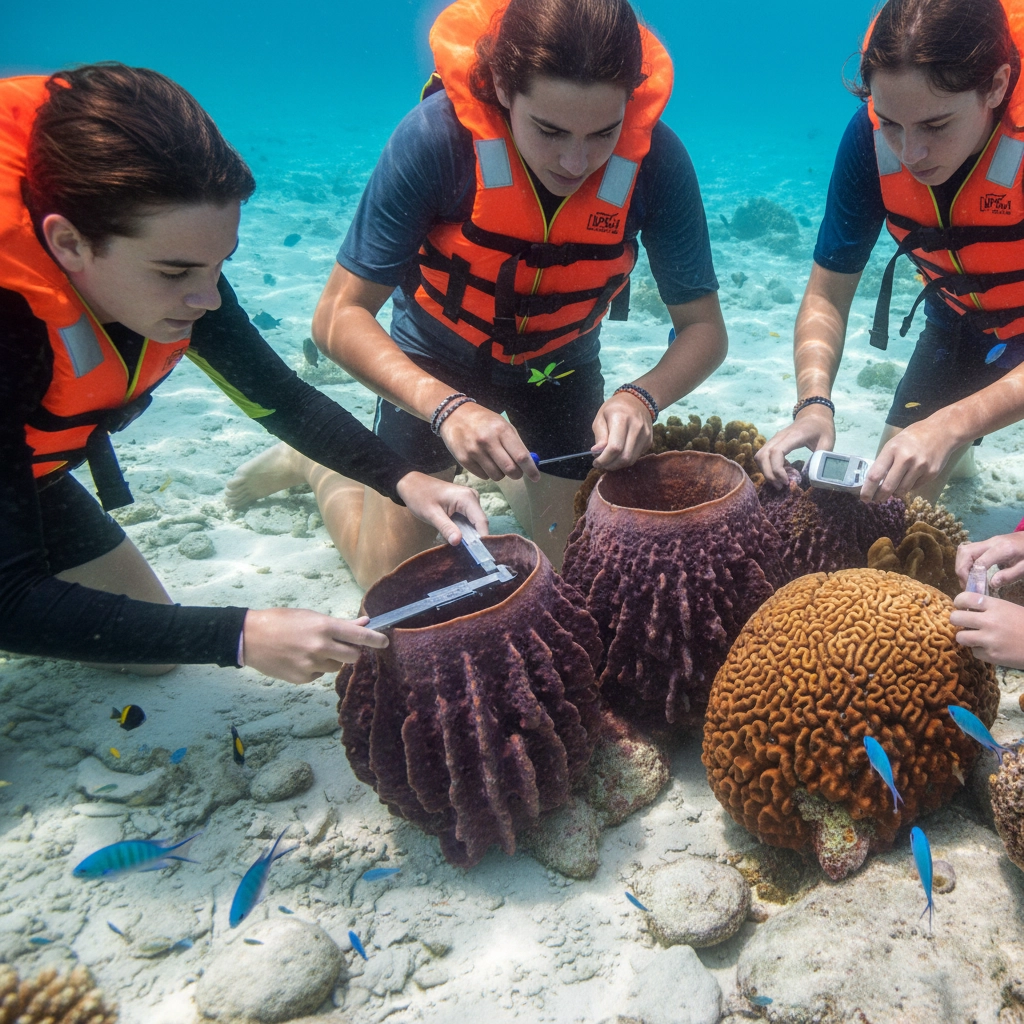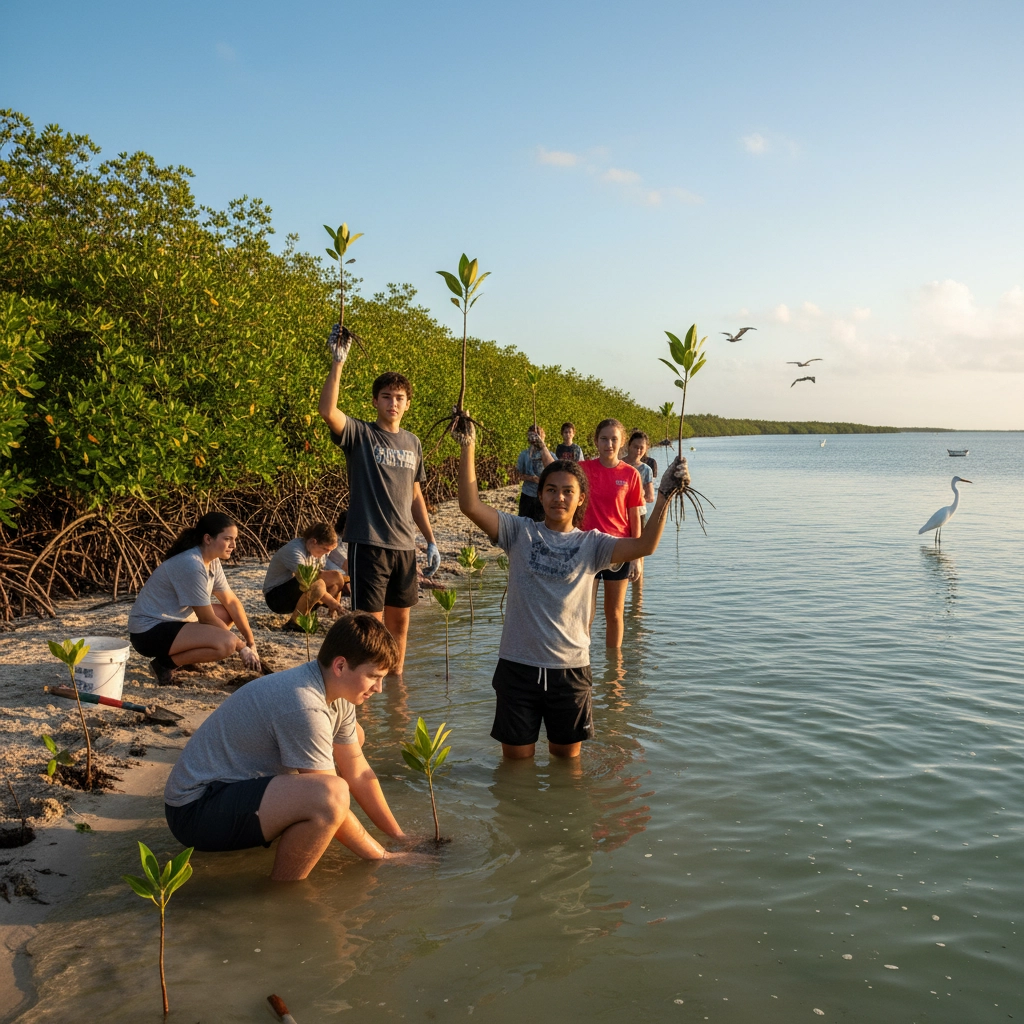Kayaking Florida Keys: Science Adventures for Student Groups
- Caleb Mullenix
- Oct 27, 2025
- 5 min read
Transforming your students into marine scientists begins with immersing them in the world's most accessible living laboratory. The Florida Keys offer unparalleled opportunities for hands-on scientific discovery, where kayaking serves as the gateway to understanding complex marine ecosystems. Ensuring your students experience meaningful scientific learning while maintaining safety standards requires careful planning and the right educational partner.
The Florida Keys: Nature's Living Classroom
The Florida Keys present a unique convergence of three critical marine ecosystems that function as an interconnected web of life. Understanding these connections forms the foundation of any successful marine science expedition.
Coral Reef Systems: The third-largest barrier reef system in the world lies just offshore, hosting over 6,000 species of marine life. Students observe firsthand how coral polyps create calcium carbonate structures that become the foundation for entire ecosystems.
Seagrass Meadows: These underwater prairies serve as nurseries for juvenile fish, feeding grounds for sea turtles, and carbon sequestration systems that combat climate change. Students collect water quality data and document species diversity in these productive habitats.
Mangrove Forests: Acting as natural water filters and storm barriers, mangroves create brackish water environments where saltwater and freshwater species coexist. Students study adaptation strategies and measure salinity gradients while paddling through these coastal forests.

Kayaking as Scientific Methodology
Kayaking provides silent, non-invasive access to sensitive marine habitats while teaching students essential scientific observation skills. This approach transforms traditional classroom learning into active field research.
Stealth Observation Techniques: Students learn to approach wildlife quietly, documenting behaviors without human interference. This methodology mirrors actual marine research protocols used by professional scientists.
Data Collection While Paddling: Students record GPS coordinates, water temperature, salinity levels, and species observations directly from their kayaks. This real-time data collection teaches students how environmental scientists gather field data.
Multi-Sensory Learning: Beyond visual observations, students experience the smell of mangrove tannins, feel temperature changes between shallow and deep water, and hear the sounds of marine life breaking the surface.
Understanding Ecosystem Interconnections
Successful marine science education requires students to comprehend how separate habitats function as integrated systems. Each kayaking route demonstrates these critical connections.
Nutrient Flow Pathways: Students trace how nutrients from mangrove leaf litter feed seagrass meadows, which in turn support fish populations that maintain coral reef health through grazing and waste production.
Migration Corridors: Paddling routes follow the paths used by sea turtles, sharks, and fish species that move between ecosystems during different life stages. Students map these corridors and discuss conservation implications.
Water Quality Indicators: Students test water clarity, temperature, and pH levels across different habitats, learning how human activities upstream affect downstream marine environments.
Wildlife Encounters and Scientific Discovery
The Florida Keys provide predictable wildlife viewing opportunities that transform into structured learning experiences when properly facilitated.
Sea Turtle Research: Students observe green sea turtles grazing in seagrass beds and learn to identify individual turtles through photo identification techniques. This citizen science work contributes to ongoing population studies.
Shark Ecology Studies: Nurse sharks resting in shallow waters provide safe opportunities for students to study shark anatomy, behavior, and ecological roles. Students learn to dispel shark myths through direct observation.
Manatee Behavioral Research: Winter months offer opportunities to observe West Indian manatees in warm-water refuges. Students document feeding behaviors, social interactions, and human impact assessments.

Hands-On Marine Biology Research
Transform students into active researchers through structured scientific investigations that produce meaningful data.
Sponge Biodiversity Surveys: Students identify and catalog sponge species in shallow bay habitats, learning about filter feeding, water purification, and pharmaceutical applications of marine organisms.
Water Quality Monitoring: Using professional-grade equipment, students measure dissolved oxygen, turbidity, and nutrient levels while learning how these parameters affect marine life distribution and health.
Invasive Species Documentation: Students identify and map invasive lionfish populations while learning about ecological disruption and management strategies.
Coral Health Assessments: Students use standardized protocols to document coral bleaching, disease, and recovery rates, contributing data to regional monitoring programs.
Service Learning Through Conservation Action
Meaningful service learning opportunities integrate scientific knowledge with community engagement and environmental stewardship.
Habitat Restoration Projects: Students participate in mangrove replanting initiatives, learning about coastal protection while contributing to hurricane resilience efforts.
Wildlife Rehabilitation Support: Partnerships with local wildlife rehabilitation centers allow students to assist with sea turtle care, bird rehabilitation, and release programs.
Community Education Outreach: Students develop presentations for local schools and community groups, sharing their scientific discoveries and conservation messages with younger students and families.
Migrant Worker Community Support: Service learning extends beyond environmental work to include tutoring and mentoring children of migrant workers, demonstrating how scientific education can address social equity issues.

Safety Protocols and Risk Management
Implementing comprehensive safety measures ensures productive learning experiences while protecting student welfare in marine environments.
Water Safety Standards: All participants must demonstrate basic swimming competency and wear Coast Guard-approved personal flotation devices at all times. Emergency whistle systems and buddy pair protocols maintain constant communication.
Weather Monitoring Procedures: Real-time weather tracking and established cancellation criteria prevent exposure to dangerous conditions. Alternative indoor programming ensures continued learning during inclement weather.
Wildlife Interaction Guidelines: Students receive thorough briefings on appropriate wildlife viewing distances, prohibited feeding behaviors, and emergency response procedures for unexpected animal encounters.
Equipment Maintenance Protocols: Daily equipment inspections, proper kayak launching techniques, and paddle safety training prevent equipment-related injuries and ensure reliable transportation.
Curriculum Integration and Learning Outcomes
Successful marine science expeditions align field experiences with established educational standards and measurable learning objectives.
Next Generation Science Standards Alignment: Field activities directly address NGSS performance expectations in life science, earth science, and environmental science across middle and high school grade levels.
Data Analysis and Reporting: Students learn to organize field data, create graphs and charts, and draw scientifically valid conclusions from their observations. These skills transfer directly to classroom science courses.
Scientific Communication: Students practice scientific writing through field journals, formal lab reports, and presentation preparation. These communication skills benefit all academic subjects.
Environmental Stewardship Development: Exposure to both pristine and degraded marine habitats develops student understanding of human environmental impact and personal responsibility for conservation action.

Pre-Trip Preparation Strategies
Maximize field experience value through comprehensive preparation that builds background knowledge and establishes behavioral expectations.
Marine Ecology Foundation Building: Students complete background reading assignments covering basic marine biology concepts, ecosystem relationships, and Florida Keys environmental challenges.
Research Protocol Training: Classroom practice sessions teach proper use of scientific equipment, data recording techniques, and observation methodology before field deployment.
Safety and Behavior Expectations: Clear communication of safety protocols, group behavior standards, and emergency procedures ensures student preparedness and reduces field supervision requirements.
Service Learning Project Planning: Students research community needs and develop action plans for meaningful service contributions during their expedition.
Post-Trip Learning Reinforcement
Extend learning impact through structured follow-up activities that reinforce field experiences and demonstrate knowledge application.
Data Analysis Projects: Students compile and analyze their field data, creating scientific reports that demonstrate understanding of marine ecosystem relationships and human environmental impact.
Community Presentation Development: Students create multimedia presentations sharing their discoveries with parents, school administrators, and community members, reinforcing learning through teaching others.
Action Project Implementation: Students design and implement school-based conservation projects that apply their Florida Keys learning to local environmental challenges.
Peer Teaching Opportunities: Returning students serve as mentors and teaching assistants for subsequent expeditions, deepening their own understanding while supporting new learners.
The Florida Keys provide unmatched opportunities for transformative science education through kayak-based exploration of interconnected marine ecosystems. Proper planning, safety protocols, and curriculum integration ensure these experiences develop scientific thinking skills, environmental awareness, and conservation ethics that benefit students throughout their academic and professional careers. When combined with meaningful service learning opportunities, these expeditions demonstrate how scientific knowledge creates positive community impact and personal responsibility for environmental stewardship.



Comments